This post may contain affiliate links. Please read my disclosure policy.
Spices are found in nearly everyone’s home, but not everyone knows best practices when it comes to buying, storing and using spices! We’re talking Spice 101 today and everything you need to know about kitchen spices!
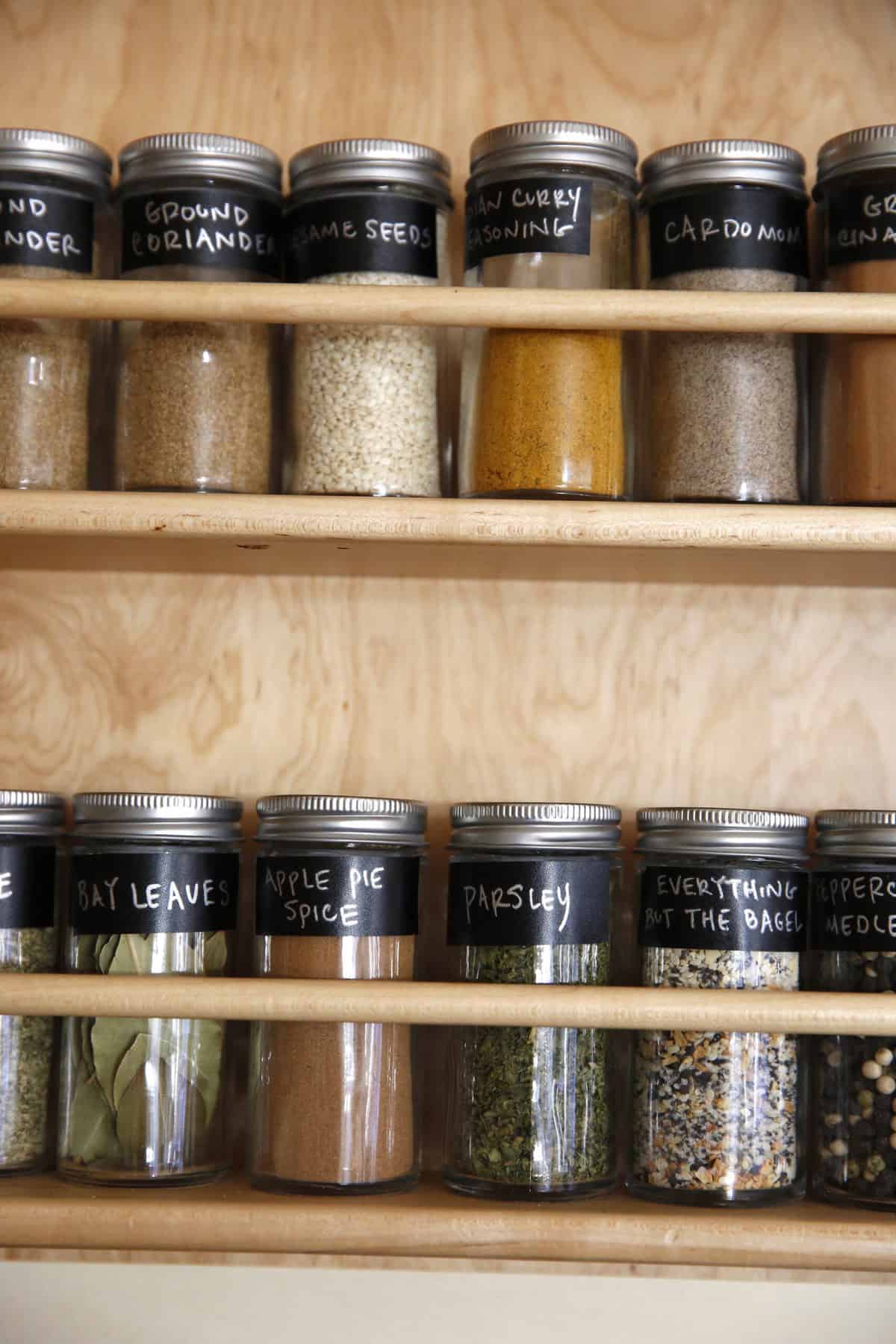
Spices are a staple in pretty much every kitchen. Even the best recipes and most delicious ingredients usually need a little extra something… and that extra something can very often be found in your spice cabinet.
And guess what? Spices are more than just delicious! Many of them offer substantial health benefits, making it super easy to sneak a bit more wellness into the food you make for yourself and your family. What’s not to love about adding just a little bit of this or a little bit of that to make dishes healthier? You’ve gotta love it.
But before you can fully reap the taste and health benefits of spices, there are some things you should know about them. That’s right, friends — there are some ways of shopping for, storing, and using spices that are better than others. Once you have that info, you can be that much more intentional about your personal spice collection. In the process, you’ll waste less and get more flavor out of your food!
Do Spices Have Expiration Dates?
An important fun fact before we get into more details: spices actually have expiration dates! For the most part…
- Whole spices stay fresh for about four years.
- Ground spices become less potent around two years after purchase.
- Leafy dried herbs can lose flavor after a year, but are generally okay for one to three years.
It’s these expiration dates that make it important for you to be smart about the way you shop and store your spices. No one wants to waste spices any more than they want to waste any other kind of food!
Buying Spices
First, let’s talk about best practices for buying spices.
Like many people, you might simply restock your spice cabinet at any old grocery store. You see that you’re running out of a particular spice and grab a replacement whenever you see one.
If you want to get the most out of the spices you buy, though, you may want to follow the tips below! It doesn’t have to be complicated or inconvenient — it just requires a teeny bit of extra thought for a big payoff in flavor, taste, value, and freshness.
- Buy whole spices instead of ground. As I mentioned above, whole spices have a longer shelf life than their ground counterparts. For spices like pepper, cinnamon, and nutmeg, consider buying the whole spice and a spice grinder to do the honors.
- Shop for spices in stores where you know the stock turnover is relatively quick. Wouldn’t you rather have spices that are on the fresh side? If you’re shopping somewhere where they rarely switch out inventory, your spices may have been sitting for a long time. Don’t be afraid to ask associates at your local grocery store how frequently they turn their shelves over. If you get the feeling that dry goods — including spices — are left sitting for months and months on end, you may want to reconsider your go-to spice shopping spots.
- Buy in bulk. Penzey’s, Whole Foods, and other natural foods retailers or local spice companies tend to sell many spices in bulk in large plastic containers. You can trust that these containers are regularly refreshed — plus, bulk quantities tend to be friendlier on the wallet.
- And know when to buy less! It doesn’t make sense to buy spices in bulk when you know you only need them for specific dishes and in small quantities. If you’re picking up spices for a special recipe, see if you can grab just a pinch or two from those bulk bins. This way, you won’t be shoving the rest of a jar of a rarely-used spice to the back of the cabinet to get stale.
- Shop from specialty shops when you can. Even the best-intentioned grocery stores might lose track of how long spices have been sitting on the shelf — not only in the aisle, but in their storerooms behind the scenes. For this reason, if it’s really important to you to maximize the spices you purchase, you might want to get them from a specialty kitchen shop or family market, where store owners are more likely to be able to confirm that what they are selling is fresh because of their lower inventory. Plus, you’ll be supporting a small business while you’re at it.
REASONS TO BUY ORGANIC HERBS AND SPICES
Conventional, inorganic spices are loaded with chemicals by the time they hit your plate, which is more than a reason to stay away from them and switch to organic options. Since conventional farming practices rely on chemical intervention, you expose yourself to a host of issues because you simply do not know the long-term effects of ingesting these chemicals over a lifetime. Over time, you may not think that herbs and spices can make a difference to your health, but considering that you are using these ingredients in your cooking on a daily basis and from different inorganic sources, you are better off removing them completely.
So Is Organic Important When Buying Spices?
With that in mind, my answer is a big YES! I am a big proponent of shopping smart. Not everything needs to be organic, but there are some biggies, and spices fall into that based on my research. Conventional spices are often grown using fumigation and irradiation practices, and contain high concentrations of toxic chemical additives, GMOs, synthetic anti-caking agents.
So yes, I do recommend organic spices. While they may cost a bit more, it’s worth it! Remember, as a general rule, whole spices will stay fresh for about 4 years, ground spices for about 2 to 3 years and dried herbs for 1 to 3 years. So you won’t be running to the store often to replace them.
Now that you’ve purchased your spices and brought them home, it’s time to ensure that they stay fresh and flavorful for as long as possible.
How to Store Spices
Changing the way you shop for spices is only half the spicy battle. I want to make sure you are storing your spices to maximize their use and flavor, as well! Here are some ideas to help you do just that…
- Store them in a cool, dark place. Spices will last longer when they are kept somewhere cool and dark, which is probably where the whole concept of a “spice cabinet” came from. Avoid exposing your unused spices to light and heat as much as possible.
- Keep moisture out of your spices. Moisture can ruin many spices. Do not use wet utensils when cooking with spices, since you’ll risk introducing that moisture and damaging what’s left of the spice. It’s also best to avoid shaking a spice container over a steaming pot, pan, or dish.
- Store your spices in glass jars. You know I’m a big fan of using glass jars for storage in my own kitchen — and spices are no exception! If you buy spices in bulk, it can be helpful to have larger, reusable glass jars on hand to transfer the spices into at home. If the jars have well-fitted lids, you won’t have to deal with any those issues of moisture I just mentioned.
- Freeze spices. You freeze leftovers and other foods to help lock in their flavor, right? Well, the same logic works for spices! You can work around that pesky shelf life issue by putting spices that you’re not using — and want to keep fresh — in the freezer. Be sure they are sealed in an airtight container before doing so.
- Track the age of your spices. Now that you know that spices tend to be best within a window of one to two years, you can see why I think it would be helpful to make a note about the purchase dates for the spices in your kitchen. You may not know for sure how long the spices have been sitting at the store, but you can certainly stay on top of the situation once you’ve brought them home to maximize flavor and freshness. Make a note on the bottom of your spice containers with your purchase date so you’ll know when an ingredient is past its prime.
What are the 5 Best Spices?
Now, let’s talk about my favorite spices!
With all of those details about shopping for and storing spices in your arsenal, you should be feeling more excited than ever to add some extra flavor to your meals. With that in mind, I thought it would be fun to share the go-to spices that I always keep in my kitchens. Aside from good sea salt and pepper, these are the spices that I couldn’t live without:
- Garlic Granules
- Chili Powder
- Paprika
- Cumin
- Red Pepper Flakes
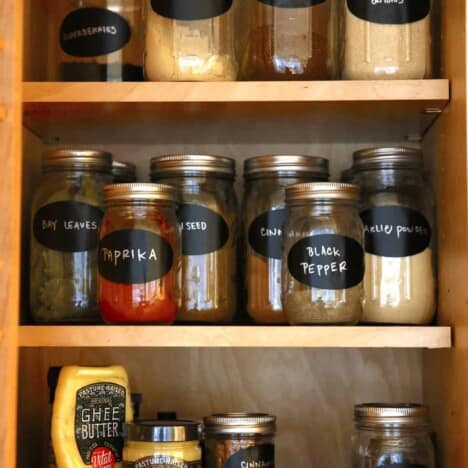
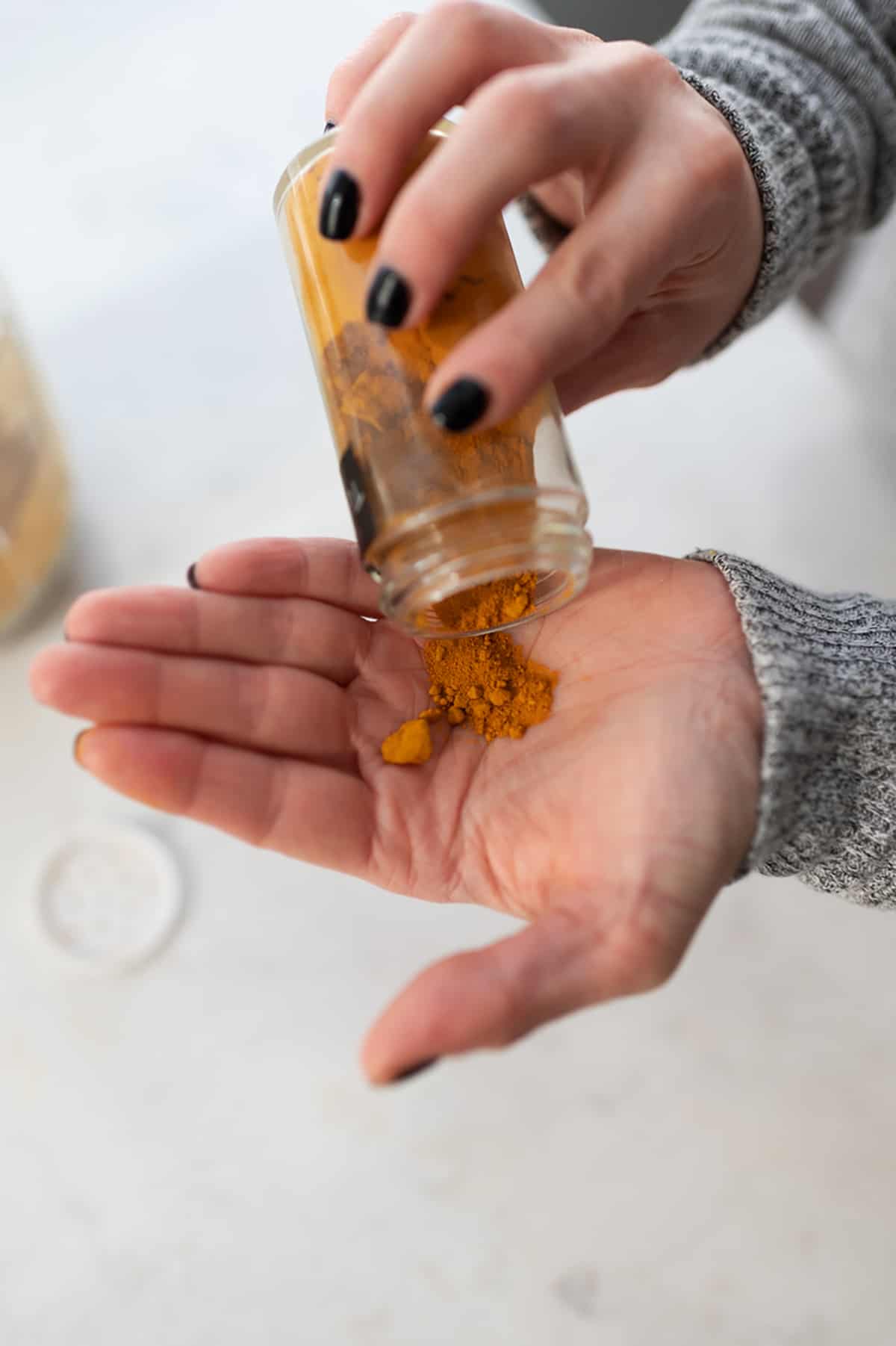
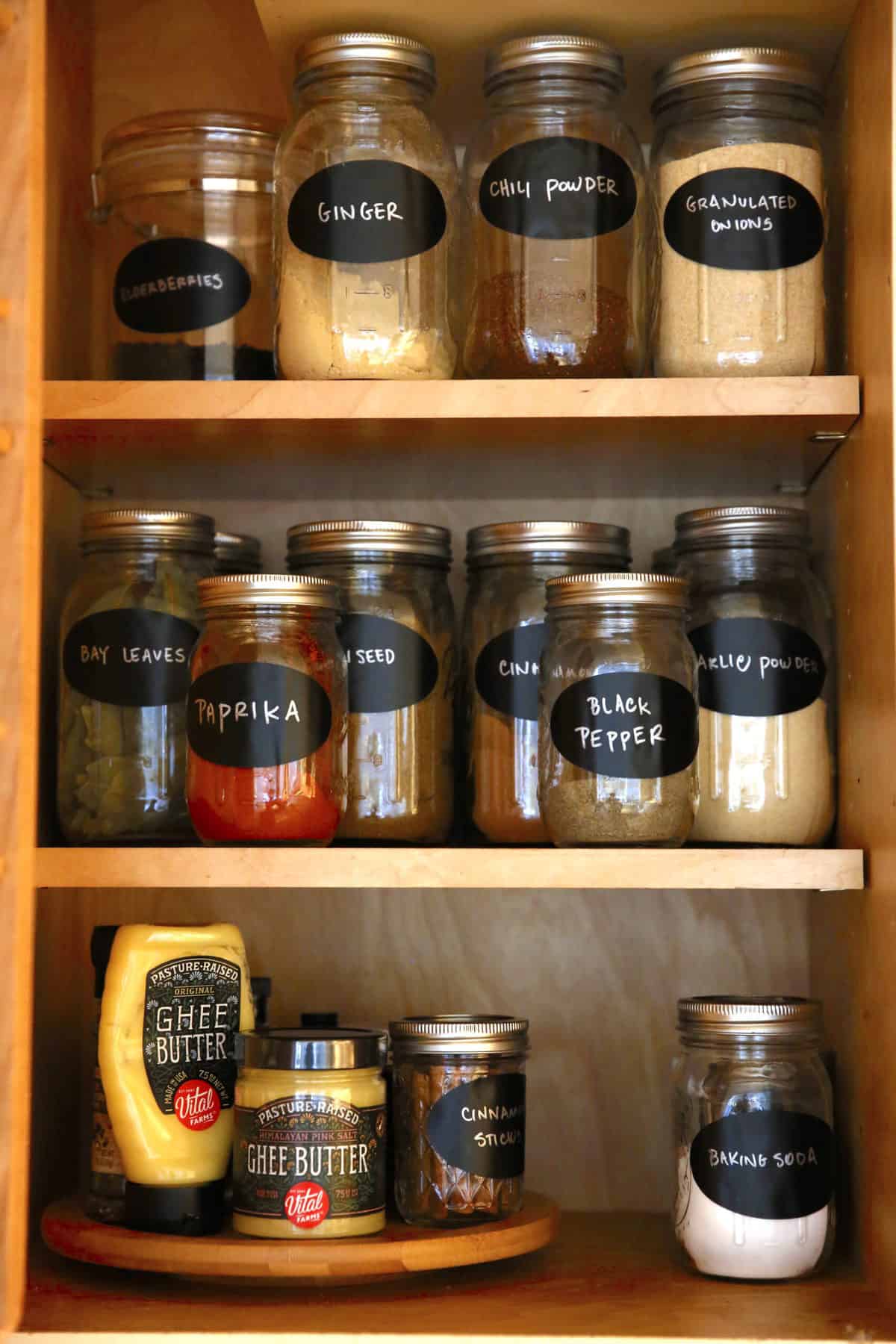
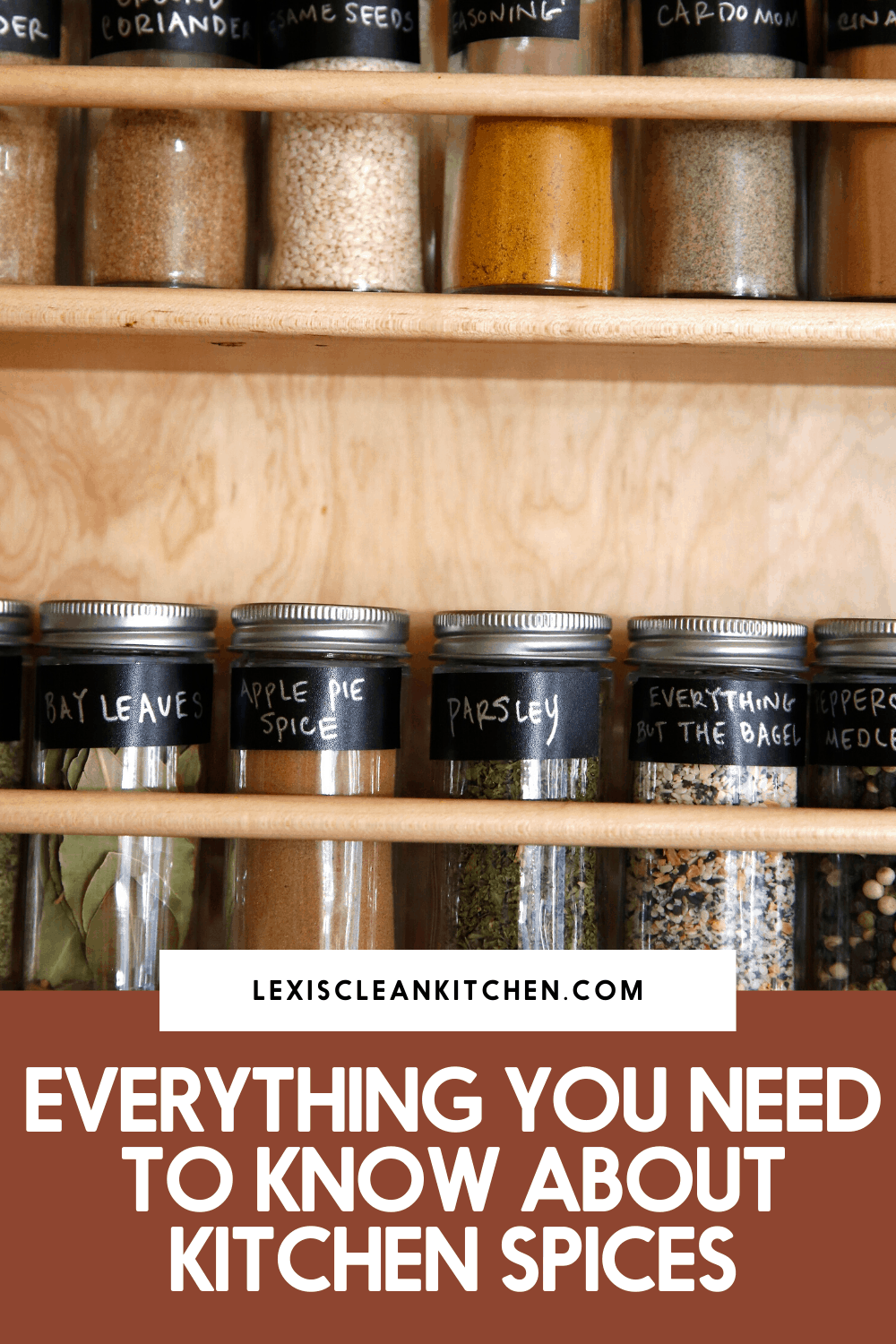





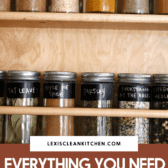
Great article. Where is the best place to buy organic spices?
Thank you
Vickie
Hi Vickie.
Currently we’ve been loving Thrive Market: http://thrivemarket.com/Lexi
Lexi buys them in bulk and then decants them.
let us know if you have any other questions.